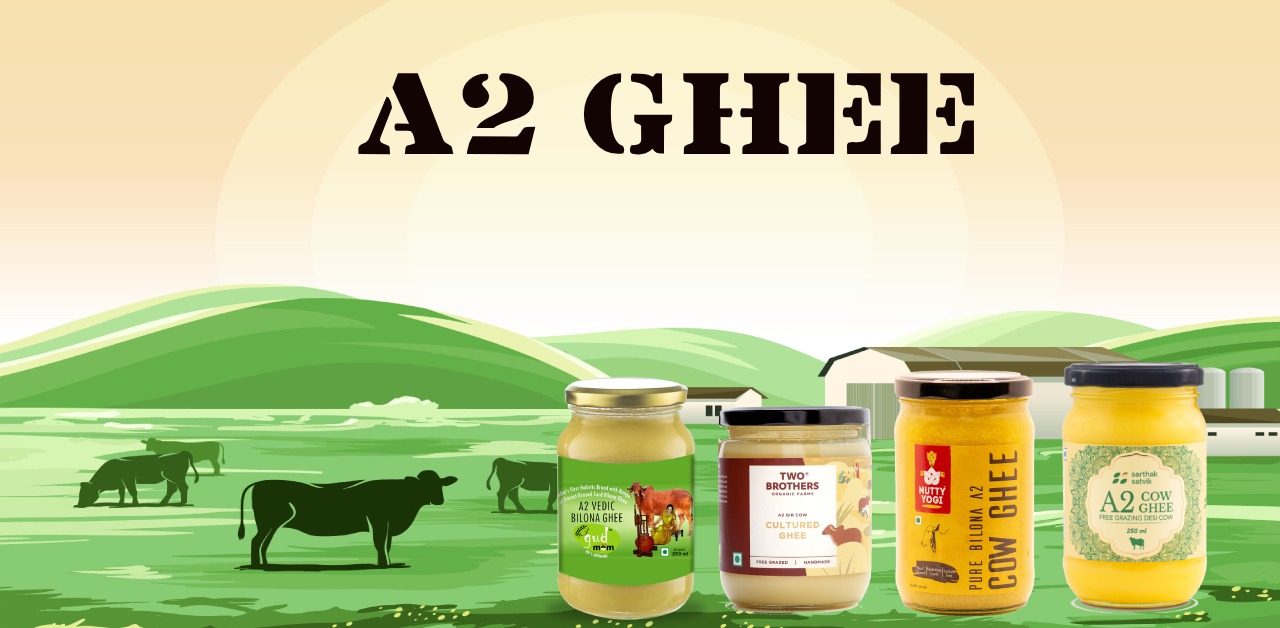Introduction
Ghee, a staple in Indian cuisine and Ayurvedic medicine, has garnered attention worldwide for its potential health benefits. However, within the realm of ghee, there exists a distinction that has piqued the curiosity of health enthusiasts: A2 Ghee versus regular ghee. In this article, we delve into the differences between the two and explore which emerges victorious in the health game.
Understanding Ghee
Before we delve into the A2 versus regular ghee debate, let’s take a moment to understand what ghee is and why it holds such significance in various cultures. Ghee, also known as clarified butter, is a type of fat derived from cow’s milk. It is made by simmering butter until the water evaporates and the milk solids separate, leaving behind a golden liquid.
Ghee has been a staple in Indian households for centuries, valued not only for its rich flavor but also for its medicinal properties. In Ayurveda, the traditional system of medicine in India, ghee is revered for its ability to balance the body and promote overall health.
What is A2 Ghee?
A2 ghee refers to ghee made from the milk of cows that produce only A2 beta-casein protein. These cows, known as A2 cows, are a specific breed that carries the A2 gene variant. In contrast, conventional dairy cows may produce milk containing both A1 and A2 beta-casein proteins.
The A2 ghee, often labeled as A2 cow ghee or Desi ghee, is believed to offer distinct health benefits due to the composition of its milk protein. Advocates of A2 ghee claim that it is easier to digest and less likely to cause intolerance or allergic reactions compared to ghee made from A1 milk.
Regular Ghee: The Traditional Choice
On the other hand, regular ghee, made from the milk of conventional dairy cows, has been the go-to option for generations. This ghee may contain both A1 and A2 beta-casein proteins, depending on the breed of cow and the production methods used.
Regular Ghee is prized for its rich flavor and versatility in cooking. It is widely used in Indian cuisine, where it adds depth and aroma to dishes ranging from savory curries to sweet desserts. Despite its popularity, some individuals may experience digestive discomfort or sensitivity to regular ghee, especially if they have underlying lactose intolerance or dairy allergies.
Health Benefits of A2 Ghee
Proponents of A2 ghee tout several potential health benefits associated with its consumption. One of the primary claims is that A2 ghee is easier to digest, making it suitable for individuals with sensitive stomachs or dairy sensitivities. The absence of A1 beta-casein protein, which some studies have linked to digestive issues, is often cited as a reason for the perceived superiority of A2 ghee.
Furthermore, A2 ghee enthusiasts suggest that it may offer anti-inflammatory properties and support gut health. Some research indicates that A2 milk products, including A2 ghee, may help alleviate symptoms of certain digestive disorders, although more studies are needed to confirm these findings.
Regular Ghee: Taste and Tradition
While A2 ghee may have its proponents, regular ghee continues to hold its own in terms of taste and tradition. For many, the familiar flavor of traditional ghee is irreplaceable, evoking memories of home-cooked meals and festive celebrations.
Regular ghee is also widely available and more affordable than its A2 counterpart, making it accessible to a broader range of consumers. Its versatility in cooking and baking ensures that it remains a pantry staple in households around the world, regardless of dietary preferences or health trends.
The Verdict: Which One Wins?
So, which type of ghee emerges victorious in the health game? The answer may not be straightforward, as it ultimately depends on individual preferences, dietary needs, and health concerns.
For those with lactose intolerance or dairy allergies, A2 Ghee may offer a gentler alternative that allows them to enjoy the flavor and benefits of ghee without discomfort. Its potential digestive benefits and perceived purity appeal to health-conscious consumers seeking natural, minimally processed foods.
However, regular ghee holds its ground as a beloved culinary ingredient deeply ingrained in culinary traditions and cultural practices. Its rich flavor and culinary versatility make it a timeless favorite in kitchens worldwide, despite the rise of alternative options


